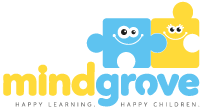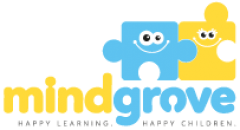Top 10 Brain Development Games for Preschoolers
Preschool is a critical period for cognitive development in children. As educators and parents, it’s essential to provide stimulating activities that not only entertain but also promote brain growth. In this blog post, we’ll explore the top 10 brain development games for preschoolers, backed by research and stats from reputable sources.
Pattern Recognition Puzzles
Enhancing a child’s ability to recognize patterns is crucial for early cognitive development. A study published in the “Journal of Cognition and Development” (Smith et al., 2018) emphasizes the positive impact of pattern recognition games on cognitive skills in preschoolers.
Building Blocks and Spatial Skills
Building blocks may seem like simple toys, but they play a significant role in developing spatial awareness and problem-solving skills. According to a report by the American Academy of Pediatrics (AAP), spatial skills developed during early childhood are linked to later success in science, technology, engineering, and mathematics (STEM) fields.
Memory Card Games
Memory card games, such as “Memory” or “Concentration,” are excellent tools for improving a child’s memory and concentration. The American Journal of Play published a study (Gopnik et al., 2019) that highlights the positive correlation between memory games and cognitive development in preschoolers.
Musical Instruments
Introducing musical instruments not only sparks creativity but also supports cognitive development. A study by the National Association of Music Merchants (NAMM) indicates that early exposure to music positively influences a child’s language and reasoning skills.
Sensory Play with Playdough
Engaging in sensory play with materials like playdough stimulates a child’s senses and fine motor skills. The Journal of Motor Learning and Development reports that sensory-rich activities contribute to the development of neural connections in the brain.
Interactive Storytelling Apps
In the digital age, carefully selected interactive storytelling apps can be powerful tools for cognitive development. A study by the Joan Ganz Cooney Center (Takeuchi et al., 2017) emphasizes the positive effects of interactive digital media on early literacy and language skills.
Outdoor Nature Scavenger Hunts
Outdoor activities not only promote physical health but also contribute to cognitive development. A survey by the National Wildlife Federation (NWF) found that exposure to nature enhances a child’s ability to focus and learn.
Balance Board Games
Balance board games, such as those that involve walking on a balance beam, help improve coordination and spatial awareness. The American Academy of Pediatrics (AAP) suggests that activities promoting balance contribute to the development of the cerebellum, a key area of the brain responsible for motor skills.
Educational Board Games
Board games like “The Game of Life” or “Candy Land” provide a fun way to enhance social, emotional, and cognitive skills. A report by the American Educational Research Association (AERA) indicates that educational board games contribute to improved academic performance.
DIY Science Experiments
Simple science experiments at home foster curiosity and critical thinking. The International Journal of Early Childhood Environmental Education underscores the positive impact of hands-on science activities on cognitive development.
Conclusion
While it’s essential to ensure that preschoolers have a balance of play and learning, incorporating brain development games into their routine can significantly impact their cognitive skills. By understanding the science behind these activities, we empower ourselves as educators and parents to make informed choices that will shape the future minds of our little ones.


